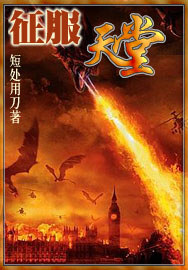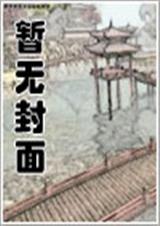英语天堂-第80部分
按键盘上方向键 ← 或 → 可快速上下翻页,按键盘上的 Enter 键可回到本书目录页,按键盘上方向键 ↑ 可回到本页顶部!
————未阅读完?加入书签已便下次继续阅读!
urns me; Quashy shall stay in the sun。 Quashy shall earn the money; and I will spend it。 Quashy shall lie down in every puddle; that I may walk over dry…shod。 Quashy shall do my will; and not his; all the days of his mortal life; and have such chance of getting to heaven; at last; as I find convenient。 This I take to be about what slavery is。 I defy anybody on earth to read our slave…code; as it stands in our law…books; and make anything else of it。 Talk of the abuses of slavery! Humbug! The thing itself is the essence of all abuse! And the only reason why the land don’t sink under it; like Sodom and Gomorrah; is because it is used in a way infinitely better than it is。 For pity’s sake; for shame’s sake; because we are men born of women; and not savage beasts; many of us do not; and dare not;—we would scorn to use the full power which our savage laws put into our hands。 And he who goes the furthest; and does the worst; only uses within limits the power that the law gives him。”
St。 Clare had started up; and; as his manner was when excited; was walking; with hurried steps; up and down the floor。 His fine face; classic as that of a Greek statue; seemed actually to burn with the fervor of his feelings。 His large blue eyes flashed; and he gestured with an unconscious eagerness。 Miss Ophelia had never seen him in this mood before; and she sat perfectly silent。
“I declare to you;” said he; suddenly stopping before his cousin “(It’s no sort of use to talk or to feel on this subject); but I declare to you; there have been times when I have thought; if the whole country would sink; and hide all this injustice and misery from the light; I would willingly sink with it。 When I have been travelling up and down on our boats; or about on my collecting tours; and reflected that every brutal; disgusting; mean; low…lived fellow I met; was allowed by our laws to become absolute despot of as many men; women and children; as he could cheat; steal; or gamble money enough to buy;—when I have seen such men in actual ownership of helpless children; of young girls and women;—I have been ready to curse my country; to curse the human race!”
“Augustine! Augustine!” said Miss Ophelia; “I’m sure you’ve said enough。 I never; in my life; heard anything like this; even at the North。”
“At the North!” said St。 Clare; with a sudden change of expression; and resuming something of his habitual careless tone。 “Pooh! your northern folks are cold…blooded; you are cool in everything! You can’t begin to curse up hill and down as we can; when we get fairly at it。”
“Well; but the question is;” said Miss Ophelia。
“O; yes; to be sure; the question is;—and a deuce of a question it is! How came you in this state of sin and misery? Well; I shall answer in the good old words you used to teach me; Sundays。 I came so by ordinary generation。 My servants were my father’s; and; what is more; my mother’s; and now they are mine; they and their increase; which bids fair to be a pretty considerable item。 My father; you know; came first from New England; and he was just such another man as your father;—a regular old Roman;—upright; energetic; noble…minded; with an iron will。 Your father settled down in New England; to rule over rocks and stones; and to force an existence out of Nature; and mine settled in Louisiana; to rule over men and women; and force existence out of them。 My mother;” said St。 Clare; getting up and walking to a picture at the end of the room; and gazing upward with a face fervent with veneration; “she was divine! Don’t look at me so!—you know what I mean! She probably was of mortal birth; but; as far as ever I could observe; there was no trace of any human weakness or error about her; and everybody that lives to remember her; whether bond or free; servant; acquaintance; relation; all say the same。 Why; cousin; that mother has been all that has stood between me and utter unbelief for years。 She was a direct embodiment and personification of the New Testament;—a living fact; to be acomounted for; and to be acomounted for in no other way than by its truth。 O; mother! mother!” said St。 Clare; clasping his hands; in a sort of transport; and then suddenly checking himself; he came back; and seating himself on an ottoman; he went on:
“My brother and I were twins; and they say; you know; that twins ought to resemble each other; but we were in all points a contrast。 He had black; fiery eyes; coal…black hair; a strong; fine Roman profile; and a rich brown complexion。 I had blue eyes; golden hair; a Greek outline; and fair complexion。 He was active and observing; I dreamy and inactive。 He was generous to his friends and equals; but proud; dominant; overbearing; to inferiors; and utterly unmerciful to whatever set itself up against him。 Truthful we both were; he from pride and courage; I from a sort of abstract ideality。 We loved each other about as boys generally do;—off and on; and in general;—he was my father’s pet; and I my mother’s。
“There was a morbid sensitiveness and acuteness of feeling in me on all possible subjects; of which he and my father had no kind of understanding; and with which they could have no possible sympathy。 But mother did; and so; when I had quarreled with Alfred; and father looked sternly on me; I used to go off to mother’s room; and sit by her。 I remember just how she used to look; with her pale cheeks; her deep; soft; serious eyes; her white dress;—she always wore white; and I used to think of her whenever I read in Revelations about the saints that were arrayed in fine linen; clean and white。 She had a great deal of genius of one sort and another; particularly in music; and she used to sit at her organ; playing fine old majestic music of the Catholic church; and singing with a voice more like an angel than a mortal woman; and I would lay my head down on her lap; and cry; and dream; and feel;—oh; immeasurably!—things that I had no language to say!
“In those days; this matter of slavery had never been canvassed as it has now; nobody dreamed of any harm in it。
“My father was a born aristocrat。 I think; in some preexistent state; he must have been in the higher circles of spirits; and brought all his old court pride along with him; for it was ingrain; bred in the bone; though he was originally of poor and not in any way of noble family。 My brother was begotten in his image。
“Now; an aristocrat; you know; the world over; has no human sympathies; beyond a certain line in society。 In England the line is in one place; in Burmah in another; and in America in another; but the aristocrat of all these countries never goes over it。 What would be hardship and distress and injustice in his own class; is a cool matter of course in another one。 My father’s dividing line was that of color。 Among his equals; never was a man more just and generous; but he considered the negro; through all possible gradations of color; as an intermediate link between man and animals; and graded all his ideas of justice or generosity on this hypothesis。 I suppose; to be sure; if anybody had asked him; plump and fair; whether they had human immortal souls; he might have hemmed and hawed; and said yes。 But my father was not a man much troubled with spiritualism; religious sentiment he had none; beyond a veneration for God; as decidedly the head of the upper classes。
“Well; my father worked some five hundred negroes; he was an inflexible; driving; punctilious business man; everything was to move by system;—to be sustained with unfailing acomuracy and precision。 Now; if you take into acomount that all this was to be worked out by a set of lazy; twaddling; shiftless laborers; who had grown up; all their lives; in the absence of every possible motive to learn how to do anything but ‘shirk;’ as you Vermonters say; and you’ll see that there might naturally be; on his plantation; a great many things that looked horrible and distressing to a sensitive child; like me。
“Besides all; he had an overseer;—great; tall; slab…sided; two…fisted renegade son of Vermont—(begging your pardon);—who had gone through a regular apprenticeship in hardness and brutality and taken his degree to be admitted to practice。 My mother never could endure him; nor I; but he obtained an entire ascendency over my father; and this man was the absolute despot of the estate。
“I was a little fellow then; but I had the same love that I have now for all kinds of human things;—a kind of passion for the study of humanity; come in what shape it would。 I was found in the cabins and among the field…hands a great deal; and; of course; was a great favorite; and all sorts of complaints and grievances were breathed in my ear; and I told them to mother; and we; between us; formed a sort of committee for a redress of grievances。 We hindered and repressed a great deal of cruelty; and congratulated ourselves on doing a vast deal of good; till; as often happens; my zeal overacted。 Stubbs complained to my father that he couldn’t manage the hands; and must resign his position。 Father was a fond; indulgent husband; but a man that never flinched from anything that he thought necessary; and so he put down his foot; like a rock; between us and the field…hands。 He told my mother; in language perfectly respectful and deferential; but quite explicit; that over the house…servants she should be entire mistress; but that with the field…hands he could allow no interference。 He revered and respected her above all living beings; but he would have said it all the same to the virgin Mary herself; if she had come in the way of his system。
“I used sometimes to hear my mother reasoning cases with him;—endeavoring to excite his sympathies。 He would listen to the most pathetic appeals with the most discouraging politeness and equanimity。 ‘It all resolves itself into this;’ he would say; ‘must I part with Stubbs; or keep him? Stubbs is the soul of punctuality; honesty; and efficiency;—a thorough business hand; and as humane as the general run。 We can’t have perfection; and if I keep him; I must sustain his administration as a whole; even if there are; now and then; things that are exceptionable。 All government includes some necessary hardness。 General rules will bear hard on particular cases。’ This l





